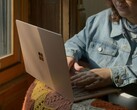In the recently published study "Working with AI: Measuring the Occupational Implications of Generative AI", Microsoft Research analyzed over 200,000 anonymized user dialogues with AI assistant Bing Copilot. The goal was to assess real automation potential. Not hypothetically, but based on actual tasks completed with AI assistance. According to the study, activities in communication and information processing overlap particularly strongly with the functions of generative AI.
Particularly affected: Writing professions and analytics functions
According to Microsoft, this affects professional groups in particular, such as journalists, technical writers, mathematicians and translators. In these areas, a high correlation has been found between typical job tasks and AI functionalities.
Quote from the publication:
"Jobs with high-information tasks and intensive communication are more susceptible to AI-driven automation."
Physical professions significantly less affected
In contrast, physically-oriented or interpersonal activities – caregiving, skilled trades and transportation – are considered significantly less at risk. These occupations require human interaction, physical presence or situation-specific action which cannot be replicated by generative models.
Vulnerable vs secure professions
The least vulnerable occupations include nurses, massage therapists and bricklayers. These jobs primarily require physical presence, specialized manual skills and direct human contact.
In contrast, translators and interpreters, journalists and mathematicians are particularly affected by automation via generative AI. Their tasks primarily involve intensive information processing and communicative activities, which are increasingly being supported or replaced by AI systems.
Structural change affects higher-skilled jobs for the first time
The study highlights that the current wave of automation differs structurally from previous technological upheavals. Unlike earlier developments, which primarily replaced simple routine tasks, higher-skilled knowledge-based professions are now at the center of the transformation.
Recommendations for companies and employees
There is a clear need for action on the part of companies and employees. Training, strategic reorientation and the integration of AI tools into existing processes are becoming decisive factors for sucess. Remaining competitive requires not only technical expertise but also organizational foresight and a long-term HR strategy.


































